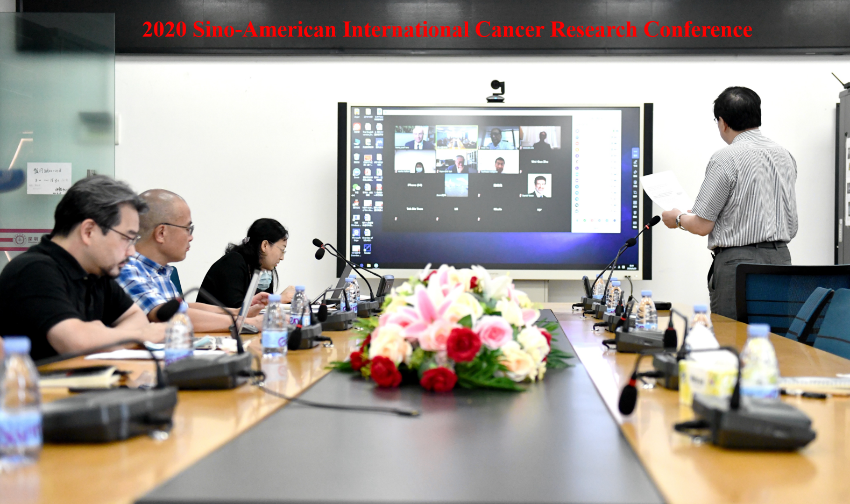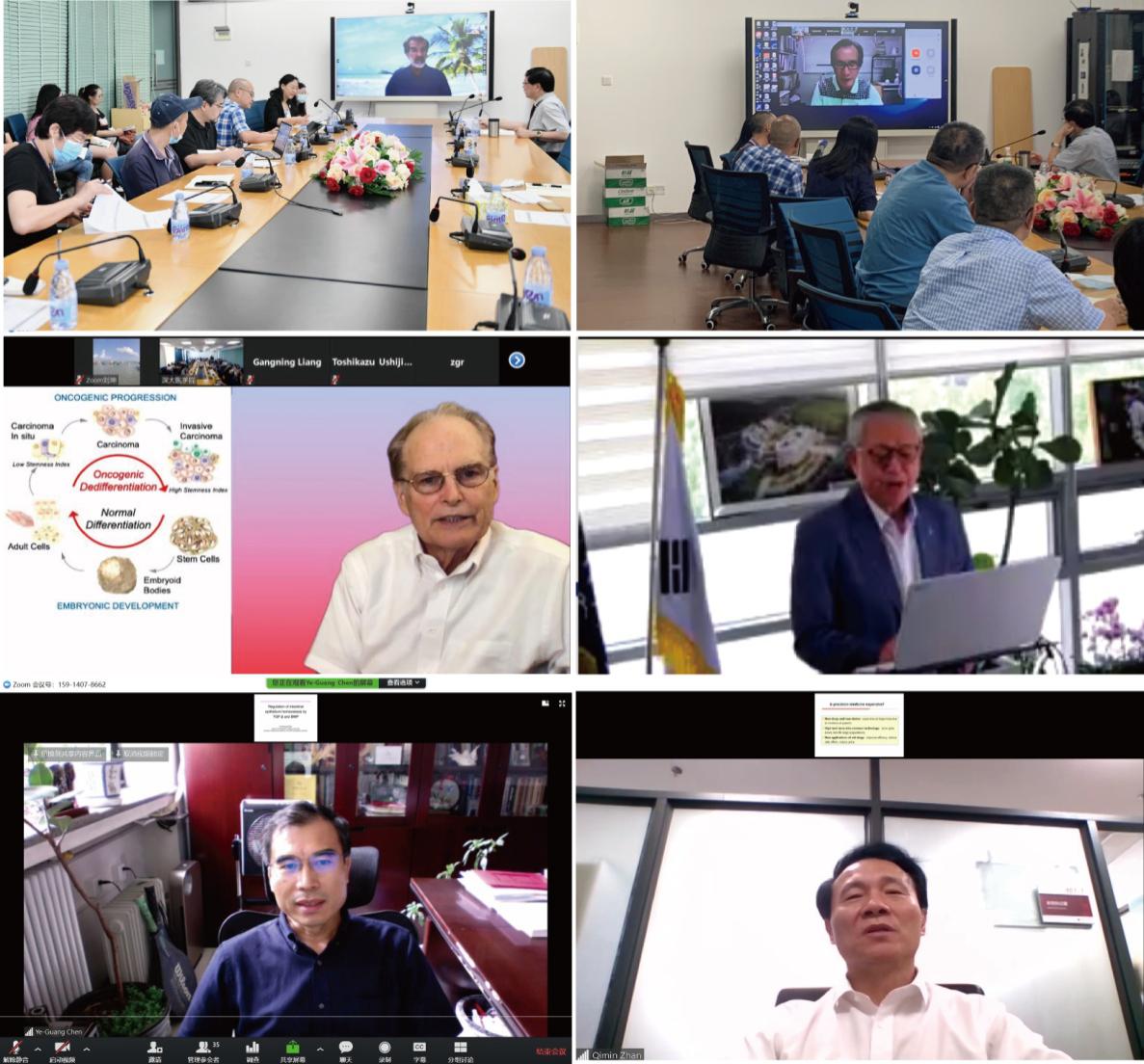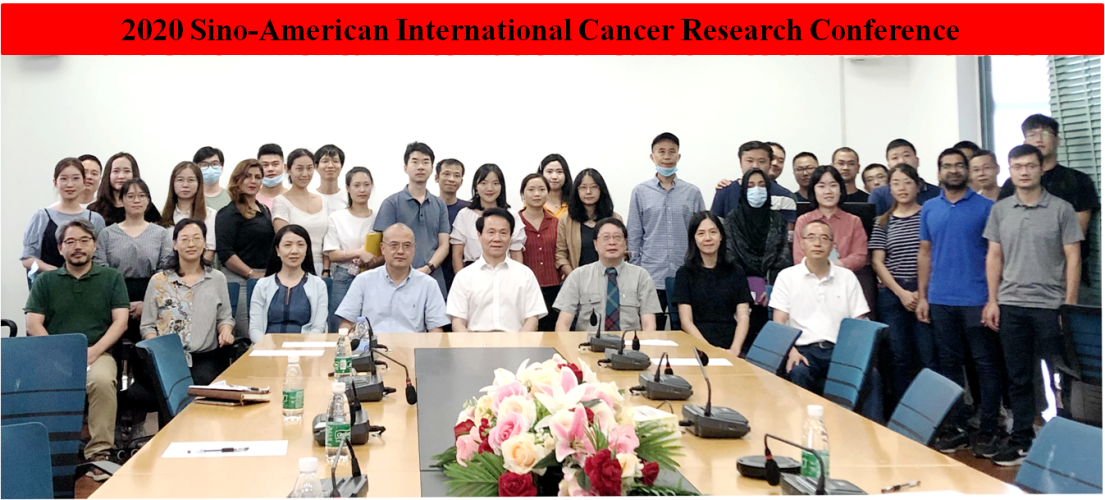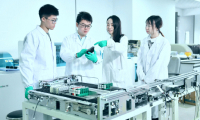“2020 Sino-American International Cancer Research Conference” Online International Conference
“2020 Sino-American International Cancer Research Conference” Online International Conference
On August 20th and 21st, the Shenzhen University Health Science Center hosted the 2020 Sino-American International Cancer Research Conference. This online conference conducted over Zoom, was organized by the Shenzhen University International Cancer Center and the Innovation Team of Immunotherapy Targeting Cancer Stem Cells (Peacock project of Shenzhen). Professor Wei-Guo Zhu, Director of the Shenzhen University Health Science Center, presided over the conference, with Professor Li Yu and Professor Zhi-Ming Cai serving as joint vice-presidents. Scientists from five different countries (United States, Singapore, Korea, Japan and China) and nine different institutions participated in discussions on the molecular pathogenesis of cancer and anti-cancer therapy.

Opening Ceremony
Conference participants heard research updates from Professor Heinz-Josef Lenz (University of Southern California), Professor Pann-Ghill Suh (Korea Research Institute of Brain) and Professer Hong-Quan Zhang (Peking University) on topics including the mechanisms of breast cancer and colorectal cancer metastasis and progression, and recent clinical advances in novel anti-cancer drug development for colorectal cancer. Professor Thomas J. Kipps (University of California at San Diego) shared his latest findings on humanized monoclonal antibodies (cirmzutumab) developed in his laboratory, and gave updates on the progress of cirmtuzumab in international multicenter clinical trials. Other highlights include Professor Mian Wu’s (University of Science and Technology of China, Henan Provincial People's Hospital) updates on research on circulating RNA, and Professor Zhi-Jie Chang’s (Tsinghua University) latest findings on the role of CREPT in cancer. In addition, Professor Woojin An (University of Southern California), Professor Gangning Liang (University of Southern California), Professor Daniel G. Tenen (National University of Singapore, Harvard Medical School), Professor Bin Tean TEH (National Cancer Centre Singapore), Professor Toshikazu Ushijima (Japan National Cancer Research Center), Professor Shunichi Takeda (Kyoto University), Professor Wei-Guo Zhu and Professor Xing-Zhi Xu (Shenzhen University) all shared and discussed their latest findings in the field of tumor epigenetics.

Online reports of Professor Daniel G. Tenen (Upper left), Professor Shunichi Takeda (Upper right), Professor Thomas J. Kipps (Left middle), Professor Pann-Ghill Suh (Right middle), Professor Ye-Guang Chen (Lower left), Professor Qi-Min Zhan (Lower right).
Conference participants also heard from Professor Ye-Guang Chen (Tsinghua University, academician of Chinese Academy of Sciences), who introduced the signaling pathways mediating intestinal homeostasis and their role in regenerative medicine; he also shared his laboratory’s latest research on DNA damage and genomic instability in cancer cells. Professor Qi-Min Zhan (Peking University, academician of Chinese Academy of Engineering) gave the final presentation of conference, covering the current status and challenges of cancer precision medicine. Professor Zhan’s talk highlighted the future direction of cancer precision medicine in China, which served as an excellent conclusion to this conference.

Meeting Group (offline)
Overall, the 2020 Sino-American International Cancer Research Conference focused on cutting-edge cancer research and provided a great opportunity for domestic and foreign scientists to exchange ideas. This conference also provided an excellent opportunity for more than 60 faculties and students from the Shenzhen University International Cancer Center, to learn about the latest advances in cancer research. The conference promoted close cooperation between Shenzhen University and other world-leading universities and research institutions, including the University of Southern California, the University of California at San Diego, the Japan National Cancer Research Center, and Kyoto University. Furthermore, this conference laid the foundation for future collaborations between Shenzhen University and the National University of Singapore and the National Cancer Centre Singapore. In summary, this conference reaffirmed the impact that research led by Shenzhen University is having on cancer research worldwide.








用户登录
还没有账号?
立即注册